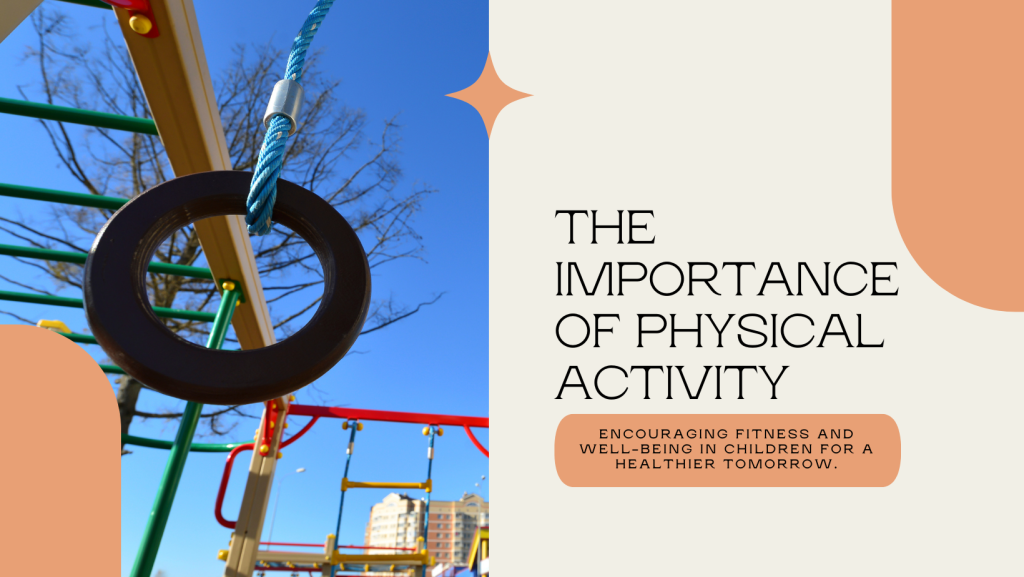Physical activity plays a pivotal role in the health and well-being of children, fostering not only physical fitness but also supporting cognitive development, social skills, and emotional resilience. In today’s increasingly sedentary world, where screen time often takes precedence over active play, it’s more important than ever to promote regular physical activity for children.
One of the key benefits of physical activity is its impact on physical health. Regular exercise helps children build strong muscles and bones, maintain a healthy weight, and reduce the risk of chronic diseases such as obesity, diabetes, and heart disease later in life. Additionally, physical activity promotes cardiovascular health by strengthening the heart and improving circulation, leading to better overall fitness and endurance.
Beyond its physical benefits, physical activity also plays a crucial role in supporting cognitive development and academic achievement. Research has shown that regular exercise can improve concentration, memory, and attention span, making it easier for children to focus and learn in school. Physical activity also stimulates the release of endorphins, neurotransmitters that promote feelings of happiness and well-being, helping to reduce stress and anxiety and improve mood.
Furthermore, engaging in physical activity provides valuable opportunities for children to develop social skills and build relationships with their peers. Whether it’s playing team sports, participating in group fitness classes, or simply playing games with friends at the park, physical activity encourages cooperation, communication, and teamwork, fostering important social skills that are essential for success in life.
Promoting physical activity in children is not just about encouraging them to run and play; it’s about creating a supportive environment that makes physical activity enjoyable and accessible. Parents, teachers, and caregivers can play a crucial role in fostering a love of physical activity by providing opportunities for active play, encouraging participation in sports and recreational activities, and serving as positive role models for healthy living.
In conclusion, the importance of physical activity in promoting fitness and well-being in children cannot be overstated. By encouraging regular exercise from a young age, we can help children develop healthy habits that will benefit them throughout their lives, setting them up for a lifetime of good health and happiness.




